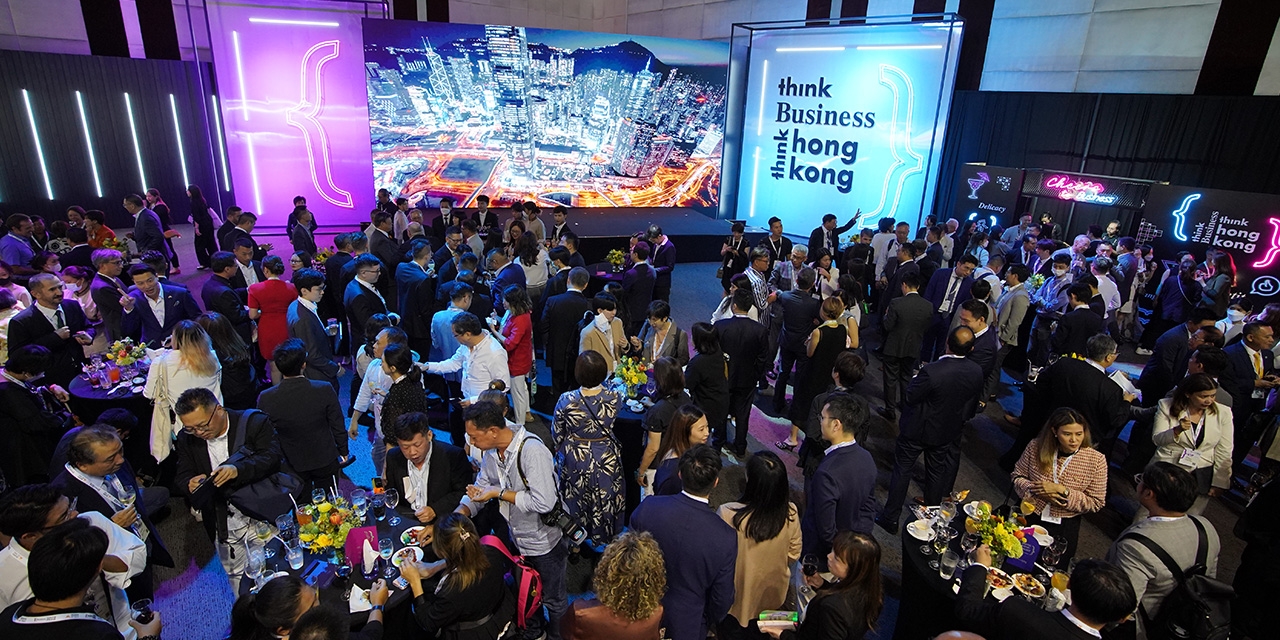
Scores of Hong Kong business leaders — who are set to join a regional mega trade promotional event on Wednesday — have pinned their hopes on Southeast Asian markets, in particular Indonesia, a market with a relatively young population and the potential to lead its ASEAN peers.
They believe that fostering deeper integration with ASEAN markets will be instrumental to the city’s joining the Regional Comprehensive Economic Partnership (RCEP) – the world’s largest free trade agreement by members’ GDP.
The executives are among around 100 business leaders, investors, innovators in a Hong Kong business delegation set to attend the forum, themed “Think Business, Think Hong Kong”, in Jakarta, Indonesia. Organized by the Hong Kong Trade Development Council, the forum is expected to attract around 1,000 Indonesian government officials and local business representatives.
Throughout the full-day symposium, participants will examine emerging economic trends and opportunities spanning Hong Kong, Indonesia, and the broader region, focusing on sectors such as robotics, artificial intelligence, and sustainable technologies.
ALSO READ: Beijing welcomes global businesses to operate in HKSAR
Indonesia has a youthful population of around 280 million – with a median age of about 30.
Rex Sham, co-founder and chief science officer at Insight Robotics, which has established a presence in Indonesia, said the nation has a relatively educated workforce and can supply competitive costs, which provides favorable conditions for foundational work in artificial intelligence — particularly the labor-intensive task of manual labeling for machine learning.
“This type of work is labor-intensive, and Indonesia has a distinct advantage,” he explained.
Sham added that Insight Robotics’ innovative solutions for detecting forest fires and managing pest outbreaks have been well-received by both government and business entities in Indonesia as they seek to enhance their environmental stewardship.
“With the specter of global warming looming, developing nations are increasingly aware of the importance of managing green assets, which can facilitate access to low-cost financing for development and help achieve carbon emission targets,” he said.
READ MORE: Hong Kong sees 46.4% year-on-year surge in property sales
Kevin To, founder of One Energy, a Hong Kong-based manufacturer of light electric vehicles, also eyed the market for greener prospects. He plans to attend the event to build relationships with local supply chain and industry stakeholders.
“Indonesia’s motorcycle ownership, totaling around 120 million units, underscores its considerable market potential,” To said.
He added that the push for carbon neutrality has created a favorable environment for promoting electric vehicles and related investments across Southeast Asia, including Indonesia.
Attracted by Indonesia’s large market and rapid technological advancements, Leapstack International, a Hong Kong tech firm specializing in AI and big data to combat insurance fraud, is mulling to move its Southeast Asian service hub in Vietnam to Indonesia.
Stanley Chow, founder and chief operating officer of Leapstack, highlighted that Indonesia’s rapid economic growth has driven demand for savings-oriented insurance products designed to fund children’s education. Additionally, healthcare-focused products are becoming increasingly popular among individuals seeking coverage for their elderly parents.
READ MORE: Cathay Group surpasses 100,000-passenger milestone in a single day
“We believe that in the next three to five years, Indonesia will emerge as the leader in Southeast Asia in terms of growth,” said Chow, who is also planning to attend the event in Jakarta.
Hong Kong and Indonesia have close trade ties. In 2023, Hong Kong emerged as the second-largest source of foreign direct investment for Indonesia, trailing only Singapore, with an investment flow of $3.769 billion. In terms of accumulated foreign direct investment, Hong Kong invested $17.253 billion in Indonesia, ranking as its sixth-largest investor, following Singapore, Japan, the United States, the Netherlands, and the Chinese mainland as of the end of 2023.
In 2023, following the city’s reopening of its boundaries after the COVID-19 pandemic, Hong Kong’s chief executive John Lee Ka-chiu led a delegation on a high-profile visit to ASEAN countries, with Indonesia being a strategic stop. During the visit, 15 memorandums of cooperation were sealed in Jakarta.
On Jan 2, 2023, RCEP – comprising 15 Asia-Pacific countries, including 10 ASEAN member states and their five trading partners, namely China, Japan, the Republic of Korea, Australia and New Zealand, took effect for Indonesia. With that, it implemented zero-tariff on 65.1 percent of products originating from China and vice versa.
READ MORE: Chan: Budget deficit to fall below HK$100b in 2024-25
Joining RCEP is also the aspiration of Hong Kong business leaders. Chow said Hong Kong’s joining the RCEP could significantly reduce trading barriers, facilitating smoother market access, enhancing competitiveness through tariff reductions and leveling the playing field.
Chow pointed out that local regulations often require foreign firms to appoint local directors, complicating expansion efforts.
Sham said that while tech products — such as those offered by his company — typically have higher added value and are less impacted by tariffs due to their irreplaceability, joining the RCEP would benefit Hong Kong businesses with lower-value offerings. It would facilitate easier market entry and enhance their ability to compete with local rivals.
Sham, who is slated to deliver a keynote address at the forum, said he intends to use this platform to highlight Hong Kong’s advantages, including its common law framework and international business practices.
Hong Kong ranks among the world’s top regions for economic freedom and competitiveness, boasting a free trade and investment system, a straightforward tax structure with low rates, and the unrestricted movement of capital and goods — creating an exceptional environment for commerce and investment.
“Many Southeast Asian nations are still unaware of the unique benefits that Hong Kong offers, and this forum will serve as a vital opportunity to showcase these advantages,” he noted.
To underscored that Hong Kong’s multilingual workforce and international business practices make it a strategic hub for connecting Indonesian companies with Chinese mainland.
“Investing in Hong Kong not only allows companies to leverage local talent but also offers substantial advantages when entering the mainland market,” he said.
Contact the writer at lilei@chinadailyhk.com


